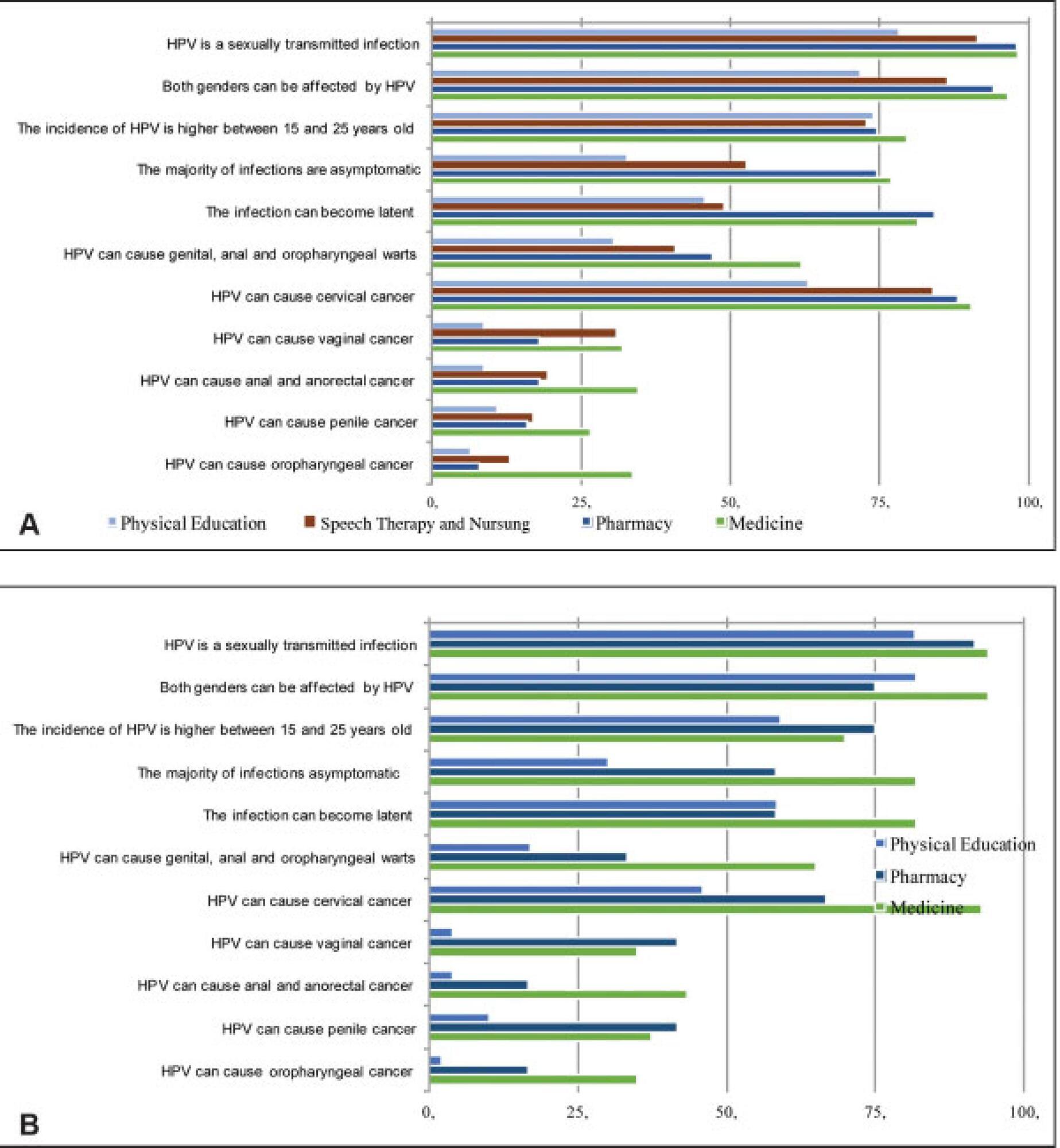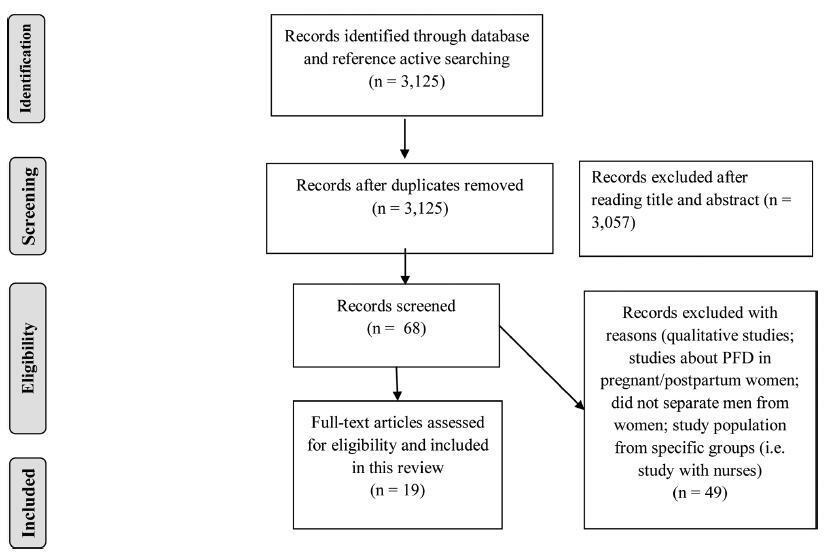Summary
Revista Brasileira de Ginecologia e Obstetrícia. 2022;44(4):391-397
To determine knowledge, attitude, and preventive (KAP) practices towards the SARS-CoV-2 (COVID-19) pandemic among women in reproductive age seeking to use copper or hormonal intrauterine devices (IUD/LNG-IUS).
We conducted a cross-sectional study in which we applied a questionnaire on 400 women about KAP practices on COVID-19 at the University of Campinas, Campinas, SP, Brazil, from May to August 2020.
The mean (±SD) age of the women was 30.8±7.9 years, and 72.8% of them reported being pregnant at least once. Most women (95%) had heard or read about COVID-19, and their main sources of information were television (91%) and government websites (53%). However, 53% of the women had doubts about the veracity of the information accessed.
Women without a partner and with>12 years of schooling had more information about COVID-19 and on its impact on new pregnancy, and those from high socioeconomic status had a higher chance of maintaining physical distance. Safety, effectiveness, comfort, and absence of hormone in the contraceptive method (in the case of TCu380A IUD) were the main reasons for the participants to seek the service during the pandemic, and the possibility to stop menstrual bleeding was the main reason to choose the LNG-IUS.
Summary
Revista Brasileira de Ginecologia e Obstetrícia. 2020;42(5):255-265
The optimal use of contraceptive methods requires that women participate in targeted choice of methods that meet their individual needs and expectations. The Thinking About Needs in Contraception (TANCO) study is a quantitative online survey of the views of health professionals and women on aspects of contraceptive counseling and contraceptive use.
Physicians and women attending clinics for contraception were invited to complete online questionnaires. The research explored the knowledge and use of contraceptive methods, satisfaction with the current method and interest in receiving more information on all methods. Aspects related to contraceptive practice among physicians were gathered in parallel. The results obtained in the Brazilian research were compared with those of the European research, which involved 11 countries.
There was a high prevalence of contraceptive use and general satisfaction with the current method. A total of 63% of the women were using short-acting contraceptive (SAC) methods, and 9% were using a long-acting reversible contraceptive (LARC). Sixty-six percent of women were interested in receiving more information on all methods; 69% of women said they would consider LARC if they received more comprehensive information about it. Health professionals tend to underestimate the interest of women in receiving information about contraception in general, and more specifically about LARCs.
Despite the high levels of use and satisfaction with the current methods, women were interested in receiving more information on all contraceptive methods. Structured contraceptive counseling based on individual needs and expectations may lead to greater knowledge and a greater likelihood of proper contraceptive choice.

Summary
Revista Brasileira de Ginecologia e Obstetrícia. 2020;42(2):96-105
To evaluate the knowledge related to human papillomavirus (HPV) infection and the rate of HPV vaccination among undergraduate freshmen and senior students of medicine, pharmacy, speech therapy, nursing and physical education in a Brazilian university.
A questionnaire concerning sociodemographic aspects, sexual background, and knowledge about HPV and its vaccine was filled out by 492 students. Three months later, a second questionnaire, concerning the new rate of vaccination, was applied to 233 students.
Among the 290 women who answered the first questionnaire, 47% of the freshmen and 13% of the seniors stated they were not sexually active, as well as 11% of the 202 freshman and senior male students. Although the knowledge about HPV was higher among women, they reported a lower use of condoms. More than 83% of the women and 66% of the men knew that HPV can cause cervical cancer, but less than 30% of the students knew that HPV can cause vulvar, anal, penile and oropharyngeal cancer. Less than half of the students knew that HPV causes genital, anal and oropharyngeal warts. Comparing the students, the seniors had more knowledge of the fact that HPV is sexually transmitted, and that HPV infection can be asymptomatic. The rate of vaccination was of 26% for women, and of 8% for men, and it increased to 52% and 27% respectively among the 233 students evaluated in the second questionnaire.
As almost half of freshman women declared being sexually inactive, the investment in public health information programs and easier access to the HPV vaccine seem to be a useful strategy for undergraduate students.

Summary
Revista Brasileira de Ginecologia e Obstetrícia. 2019;41(8):508-519
We sought to investigate whether women present adequate knowledge of the main pelvic floor disorders (PFDs) (urinary incontinence - UI, fecal incontinence - FI, and pelvic organ prolapse - POP).
sources A systematic review was performed in the MEDLINE, PEDro, CENTRAL, and Cochrane databases for publications from inception to April 2018. Selection of studies A total of 3,125 studies were reviewed. Meta-analysis was not possible due to the heterogeneity of primary outcomes and the diversity of instruments for measuring knowledge. The quality of the articles included in the analysis was evaluated with the Newcastle-Ottawa Scale (NOS) adapted for cross-sectional studies.
Two authors performed data extraction into a standardized spreadsheet.
Nineteen studies were included, comprising 11,512 women. About the methodological quality (NOS), most of the studies (n= 11) presented a total score of 6 out of 10. Validated questionnaires and designed pilot-tested forms were the most frequently used ways of assessing knowledge. Some studies were stratified by race, age, or group minorities. The most used questionnaire was the prolapse and incontinence knowledge questionnaire (PIKQ) (n= 5). Knowledge and/or awareness regarding PFD was low to moderate among the studies. Urinary incontinence was the most prevalent PFD investigated, and the most important risk factors associated with the lack of knowledge of the pelvic floor were: African-American ethnicity (n= 3), low educational level (n= 4), low access to information (n= 5) and socioeconomic status (n= 3).
Most women have a gap in the knowledge of pelvic floor muscle dysfunctions, do not understand their treatment options, and are not able to identify risk factors for these disorders.
